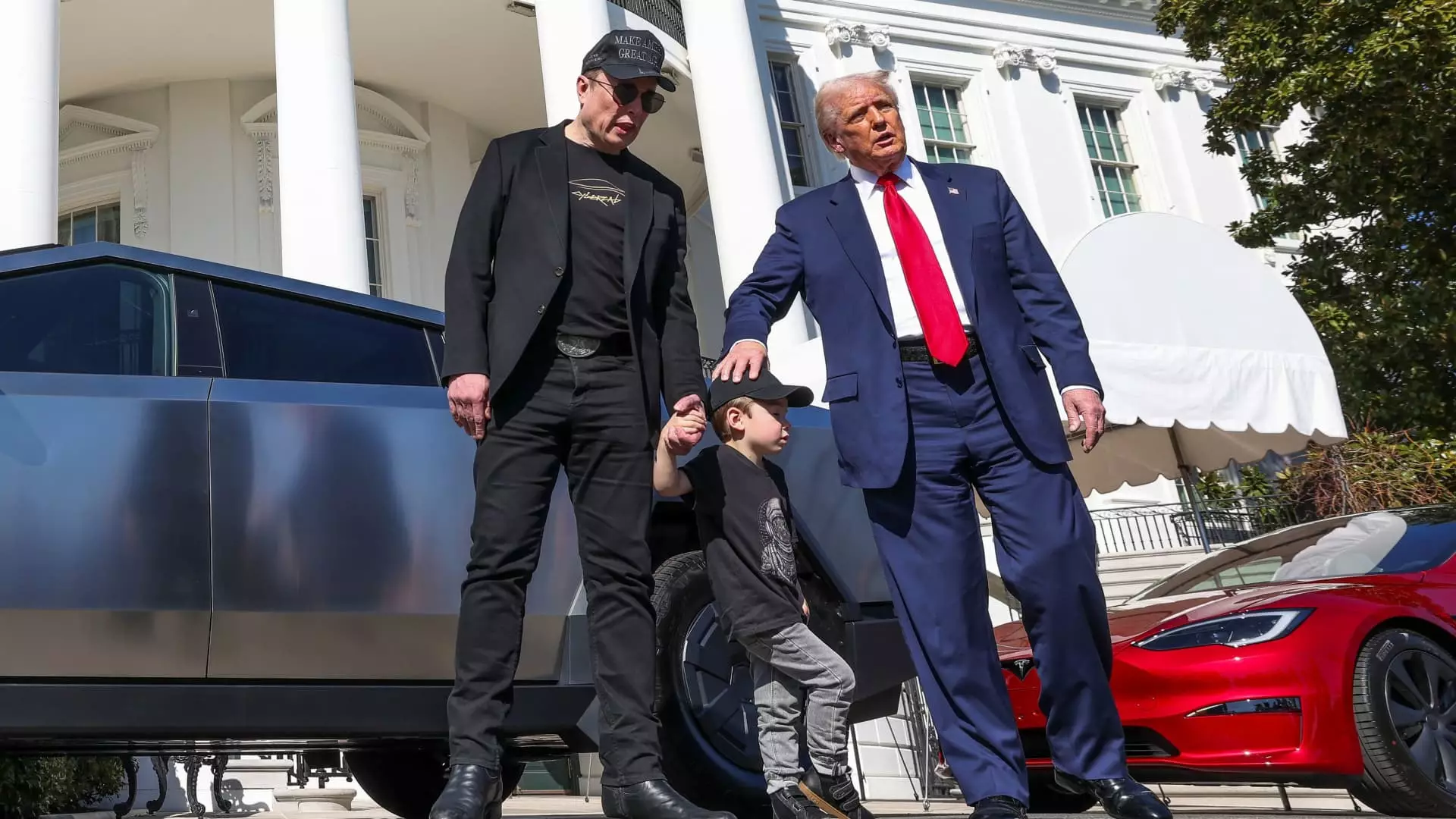If you’re a Tesla investor or an enthusiast, the latest findings from a Morgan Stanley survey might leave you feeling uneasy. An alarming 85% of respondents believe that Elon Musk’s foray into the political arena is negatively impacting Tesla’s business prospects. The reality of the situation paints a stark picture: the iconic electric vehicle company, once the darling of the stock market, is experiencing a free fall, with shares plummeting nearly 40% in a single year. These numbers aren’t just statistically significant; they represent a fundamental shift in how stakeholders are viewing both the company and its flamboyant CEO. This development forces all of us to rethink the role that a CEO should play in political affairs and, more importantly, how that involvement can backfire.
Stressed Stakeholders: A Reflection of Broader Concerns
The survey comprised just 245 participants, admittedly a small sample, but the results echo a growing sentiment among not just investors but the broader public. The majority of respondents — 45% claiming a “negative” impact and a further 40% labelling it “extremely negative” — paints a clear picture of weariness. Let’s consider what this means: stakeholders who have invested in a brand that champions innovation and sustainability are finding themselves increasingly exhausted by the distractions of Musk’s political ambitions. Perhaps even more concerning is that 12% of the surveyed crowd viewed these activities as “insignificant.” This isn’t just a business conversation; it touches on a larger narrative about the disconnect between a company’s mission and the personal ambitions of its leadership.
Challenging the Status Quo: Tesla’s Future Delivery Expectations
Adding to investor apprehension is the fact that 59% of survey participants expect Tesla’s deliveries to decline in 2025 compared to the previous year. Any decrease in delivery figures will undeniably influence consumer confidence and supply chains, sending ripples through the automotive industry. As the conversation about dwindling customer interest escalates, analysts have even raised alarms regarding reports of vandalism at Tesla dealerships, presenting a multifaceted problem that Musk must confront.
This stark outlook presents a dilemma: will Tesla, the epitome of electric vehicle innovation, allow itself to become overshadowed by its leader’s quixotic political pursuits? When you consider that only 19% believe deliveries will rise, it seems that consumers are more cautious than ever. The fallout from Musk’s political involvement may have opened the floodgates for scrutiny that risks turning off even the most ardent supporters of electric vehicles.
Musk’s Challenges in the Political Spotlight
Musk’s prominence in political circles has swelled since his fervent backing of former President Donald Trump and his role in the Department of Government Efficiency. While he aims to streamline government spending, critics argue that his approach is reckless and poorly executed. In his own words, it’s making the management of his businesses—Tesla, SpaceX, and X—nearly untenable. What once seemed like an ambitious maneuver to drive down costs now appears reckless, as potential customers and investors voice their dissatisfaction. The implications of that dissatisfaction can reverberate through sales, market confidence, and brand loyalty.
Analysts signal a return to peacetime politics in the corporate world as Musk’s high-profile escapades seem to conquer his time and focus. This has driven stock values down—more than 15% in a single day—and drawn ire from multiple fronts, including former cabinet members who have taken to the press to voice their concerns.
Parsing Stock Market Expectations Amidst Political Chaos
Amid this turmoil, predictions for Tesla’s stock remain mixed. A segment of survey respondents—45%—believe shares will rebound by at least 11% by year-end, while a significant 36% fear further declines. The divergence in expectations reflects a larger anxiety regarding Musk’s leadership during this politically charged time. Notably, a soaring stock price once offered a sense of validation for Tesla’s strategic direction, but now, that credibility hangs by a thread.
This turbulent intersection of business and politics pushes the boundaries of what it means to lead a global enterprise. With a loyal customer base that is starting to balk, Musk faces an uphill battle. It serves as a powerful reminder of the risks inherent in wielding both corporate authority and political influence simultaneously. Investors and consumers alike must decide whether the increasingly striking contrast between Musk’s political ambitions and Tesla’s core mission is a sustainable model for success.

